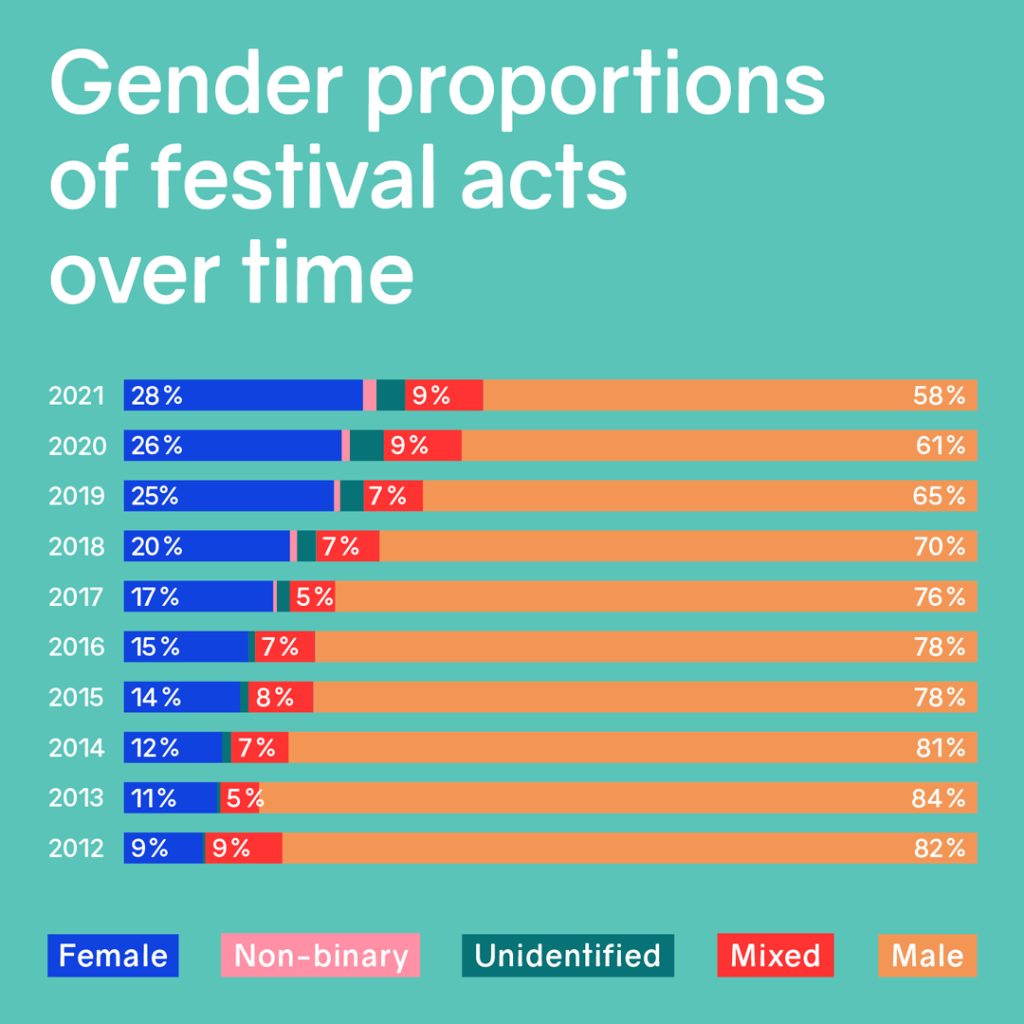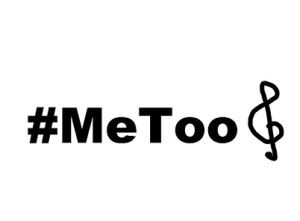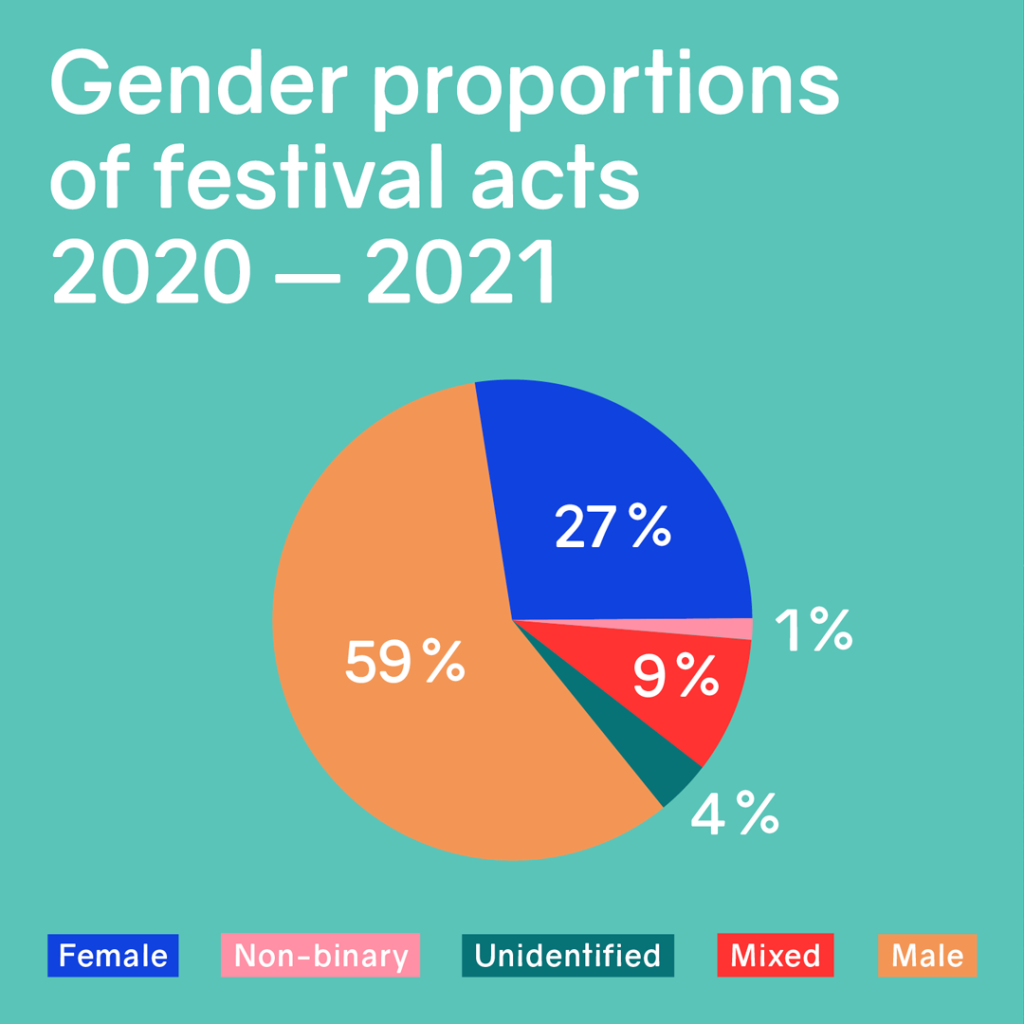In recent decades, numerous initiatives have been founded that intervene in power relations, violence, and social inequalities in musical spaces and practices. Research on these topics has increased, as well. In the online lecture series “Music, Sexual Harassment, Racism: Continuities & Change” during the present summer semester, Rosemary L. Hill, Anna Bull, and Antonio C. Cuyler will provide insights into their studies on sexual violence in popular music venues, on higher music education after #metoo, and on creative justice and Blacktivism as an anti-racist tool in opera. Moreover, three initiatives will speak about their work. In the following, female:pressure (international), Diversity Roadmap (CH), and the #metoo blog of the music project Harfenduo (DE) are introduced together with some details about their activism and commitment.
Twenty years lie between the founding of the female:pressure network in 1998 and Harfenduo’s first #metoo blog post in 2018. And in 2019, the “Diversity Roadmap”—a tool conceived specifically for music clubs and festivals—went online as well as into print. These three initiatives are of differing dimensions and objectives: female:pressure aims to increase the space of women* and non-binary people in electronic music and visual arts, Harfenduo focuses on sexual abuse in one-to-one teaching situations at institutions of music education, and the Diversity Roadmap team intervenes in sexist and racist cultural practices in popular music venues. Each of these initiatives contributes to reducing barriers to musical practices that are linked with two key categories of social inequality: gender and “race”.
female:pressure was initiated by the Austrian artist Electric Indigo. In cooperation with Andrea Mayr, a database was created that currently (as of January 2022) connects 2,850 members from 85 countries. Fostering intersectional and anti-racist approaches, this network collaborates via a mailing list and consists of female* and queer musicians, artists, DJs, sound engineers, label operators, and bookers, among others. Since 2013, female:pressure has conducted its FACTS Survey, which was published for the fifth time in March 2022. This report surveys gender relations on the stages of electronic music festivals, highlights various aspects of diversity in the electronic music scene, and presents a steadily growing catalogue of “points of action” that includes suggestions for promoting inclusion.

In 2013, this initiative also published an urgent call for female* representation in eleven languages that addressed festival curators, promoters, label owners, and journalists. This call demanded more opportunities for women* in electronic music and digital arts. In Berlin, the network’s members organised two festivals, and they also initiated a “visibility tumblr” and run a podcast in the digital space. And in 2016, the network used music and art as means of bolstering social and ethnic justice when it produced a support compilation in favour of the autonomy movement in the Rojava region of northern and eastern Syria, which is driven largely by women.
“The media coverage of sexual abuse at music conservatoires and the subsequent #metoo debate had a massive impact on our lives,” reflect Laura Oetzel and Daniel Mattelé of Harfenduo on their website.

Since 2018, these two self-employed musicians have been running a #metoo blog for the field of art music that now includes more than 30 articles. They have been providing its content and results to journalists and the media, most recently in the new podcast Alles Klar, Klassik? Their blog helps persons affected by sexual violence to be heard. It also points out the structural dimensions of sexual violence in several institutions of music education. “Eine Sängerin verstummt” [A singer falls silent] is the title of one report by an affected female artist that was published recently on Harfenduo’s blog. Furthermore, Harfenduo have conducted multiple interviews with scholars, artists, and students—such as with members of a student awareness team at the Hamburg University of Music and Theatre, which serves as a contact point for those affected by the abuse of power.
For the field of (popular) live music and particularly for music clubs and festivals, the Diversity Roadmap offers practical advice aimed at achieving more diversity and equality. It is available as a printed flyer as well as in digital form and can be downloaded or ordered online. Developed by Helvetiarockt, the Swiss coordination office and platform for female* musicians in jazz, pop, and rock, this initiative functions as a platform for exchange on diversity issues. Moreover, it connects clubs and festivals and provides specific experts upon request. Over the next two years, its focus will be on the prevention of sexualised violence and the development of a network of diversity experts.

As part of the lecture series “Music, Sexual Harassment, Racism: Continuities & Change”, these three initiatives will come together at a round table event on 14 June 2022 for a discussion of current priorities and issues. The focus will also be on changes in cultural advocacy of creative and social justice. Everyone who is interested is invited to listen to the contributions and to engage in exchange—on the practice and study of music and art, and on persistent factors that still limit integrity and diversity as everyday cultures.
For further information on all contributions featured in the online lecture series “Music, Sexual Harassment, Racism: Continuities & Change“, organized by Katharina Alexi, Rainer Prokop and Rosa Reitsamer, please visit: musiksoziologie.at

